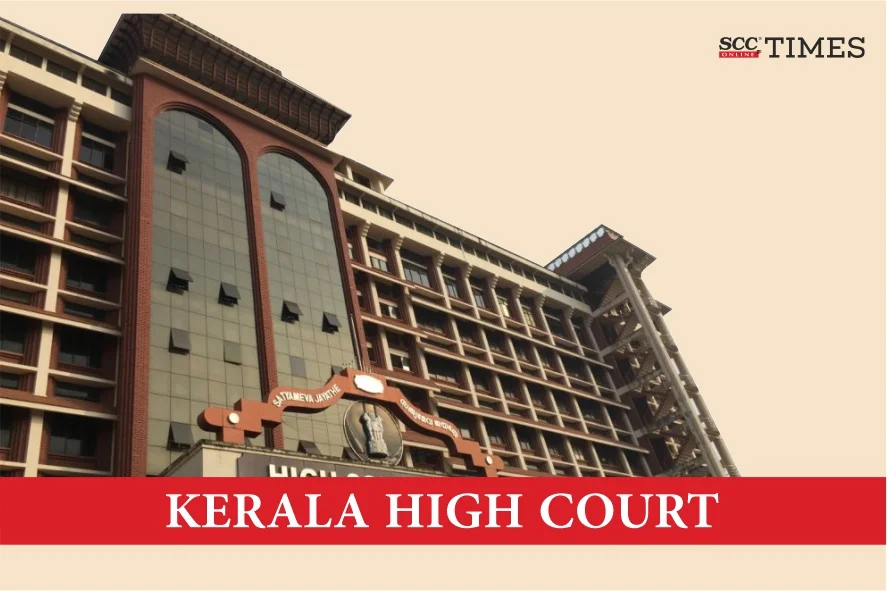Kerala High Court: In a writ petition filed by the mother of a 16-year-old rape victim, seeking permission to medically terminate the pregnancy in the 28th week, Dr Kauser Edappagath, J., noted that the under Article 226 the Court was vested with wider authority than that specified under Section 3(2) of the Medical Termination of Pregnancy Act, 1971 (‘MTP Act’), and therefore allowed the writ petition.
Background
The victim, while studying in the 11th standard, was allegedly sexually abused by her 19-year-old lover and became pregnant as a result. A criminal case was registered under Sections 376 of the Penal Code, 1860 (‘IPC’), Sections 4(1), 3(a), 3(b), 6(1), 5(j)(ii) of the Protection of Children from Sexual Offences (POCSO) Act, 2012, and Sections 3(1)(w)(i) and 3(2) (v) the Scheduled Castes and Scheduled Tribes (Prevention of Atrocities) Act, 1989 (‘SC/ST Act’).
The victim is currently in her 28th week of pregnancy, and medical experts have opined that the continuation of the pregnancy may result in severe psychological trauma to her. The family of the victim belongs to a scheduled caste community, and they are in a state of shock over the events. The victim was housed at a Childcare Home and was not mentally prepared to accept the situation and deliver the child.
However, the MTP Act allows termination of pregnancy until the 24th week (except in certain circumstances), hence the petitioner filed the instant petition seeking permission to medically terminate her 28-week pregnancy.
Analysis and Decision
The Court noted that the MTP Act, along with its 2021 amendments, expanded the gestational limit for specific groups, such as survivors of rape, incest, minors, women with disabilities, and those in emergencies. The MTP Rules, 2021, specify conditions for termination between 20 to 24 weeks, including victims of sexual assault (clause a) and minors (clause b), and in this instance, the victim qualifies under both clauses as a 16-year-old allegedly raped.
The Court further noted that, while the MTP Act restricts termination after 24 weeks, Courts, empowered by Article 226, can authorize it, as has been done by the Supreme Court and High Courts before. The Court referred to A. v. Union of India (2018) 14 SCC 75, wherein termination was allowed at 25-26 weeks in and at over 24 weeks in Meera Santosh Pal v. Union of India (2017) 3 SCC 462 and Sarmishtha Chakrabortty v. Union of India (2018) 13 SCC 339, based on medical assessments. Similarly, in XYZ v. State of Gujarat, termination was considered at nearly 27 weeks.
The Court emphasized the fundamental right of women to make autonomous decisions about their bodies and reproductive functions, as enshrined in Article 21 of the Constitution of India. It cites landmark judgments by the Supreme Court, such as K.S. Puttaswamy v. Union of India (2019) 1 SCC 1, which recognize the right to privacy and reproductive autonomy.
The Court stated “a rape victim cannot be forced to give birth to a child of a man who sexually assaulted her. Declining permission to a rape victim to medically terminate her unwanted pregnancy would amount to forcing her with the responsibility of motherhood and denying her human right to live with dignity which forms a significant part of the right of life guaranteed under Article 21 of the Constitution.”
Considering the victim’s young age, the trauma of sexual assault, and the adverse impact on her mental health, the Court allowed the writ petition, and permitted the termination of the pregnancy to be done at the Pariyaram Medical College, Pariyaram, Kannur District along with the following directions:
(i) On production of this judgment, the Superintendent, Pariyaram Medical College, was directed to take immediate measures for constituting a medical team to conduct the procedure and carry out the termination of pregnancy of the victim.
(ii) Directed the Petitioner to file an appropriate undertaking, authorising that the surgery would be conducted at her risk.
(iii) Upon termination of the pregnancy, Superintendent, Pariyaram Medical College was directed to preserve the foetus for carrying out medical test for the purpose of criminal case pending against the accused.
(iv) In the event the foetus was alive at birth, the hospital was directed to provide all necessary assistance including incubation either in the same hospital or any other hospital where incubation facility was available, in order to ensure that the foetus survived. Further, it was directed that the baby was to be offered the best medical treatment available so that it developed into a healthy child.
(v) In the event that the petitioner was not willing to assume responsibility of the baby, the Court directed the State and its agencies to assume full responsibility and offer medical aid to the child, as may be reasonably feasible, keeping in mind the best interest of the child and the statutory provisions in the Juvenile Justice (Care and Protection of Children) Act, 2015.
(vi) The Child Welfare Committee, Kannur District was directed to render all possible assistance to the victim and the petitioner during the period of their stay in the hospital.
[X v. Union of India, 2024 SCC OnLine Ker 2135, decided on 04-05-2024]
Advocates who appeared in this case :
Advocate for the Petitioner: Shameena Salahudheen
Advocate for the Respondents: Deepa Narayanan, T.C Krishna










